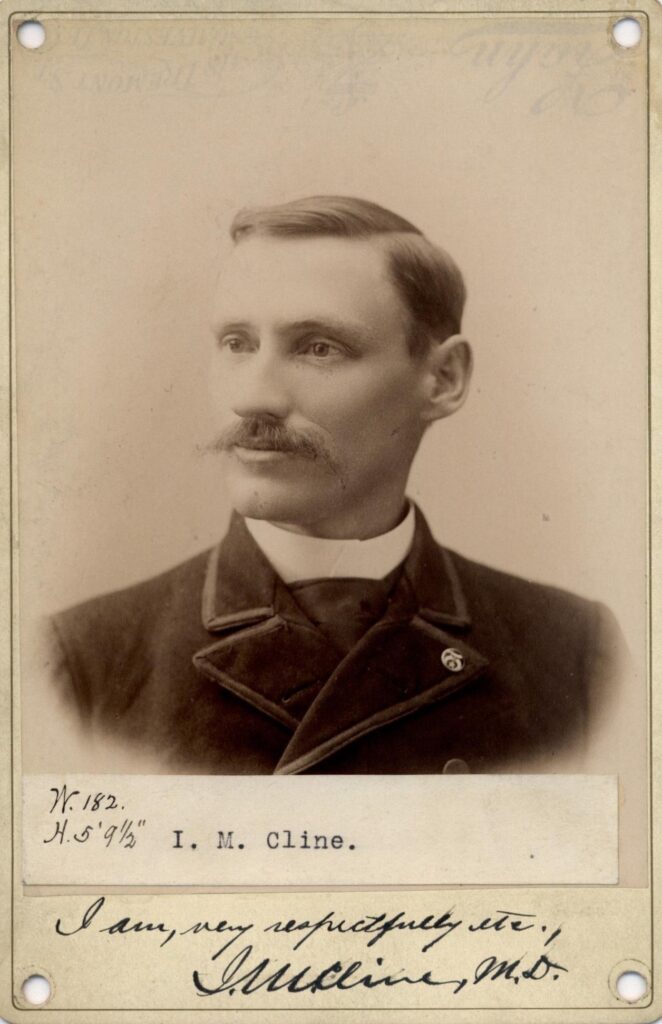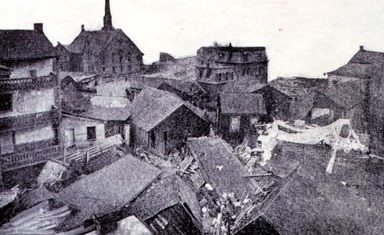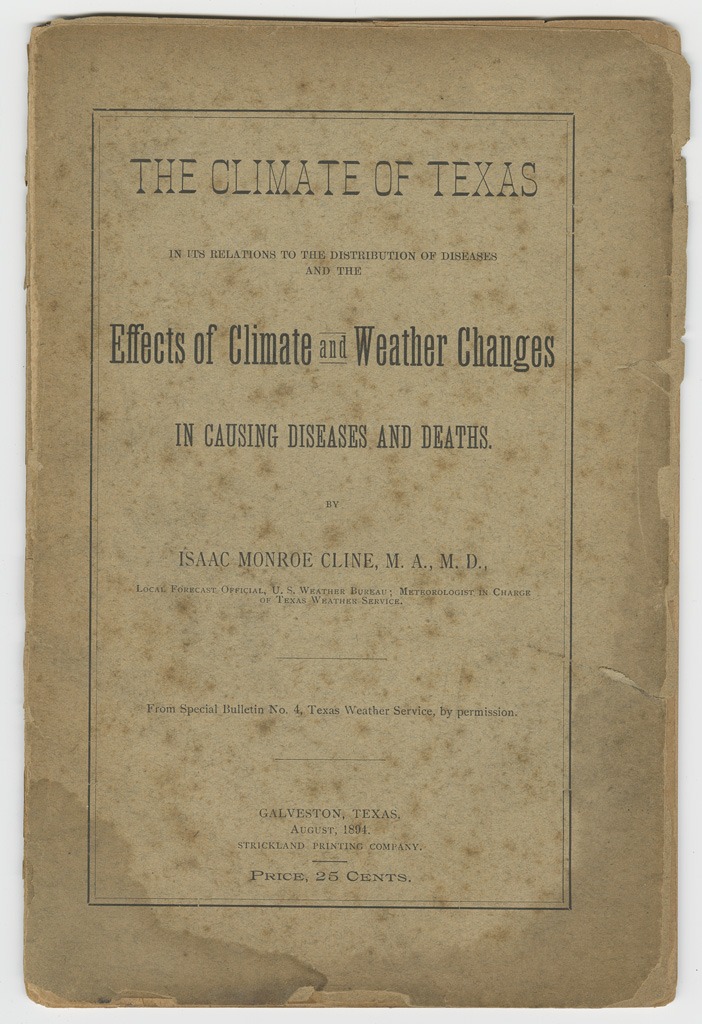By Tara Carron, Archivist and Special Collections Librarian.
Dr. Isaac Cline, a remarkable figure in the field of meteorology, played a vital role in advancing our understanding of weather patterns and their impact on human life. Beyond his contributions to meteorology and predicting the Galveston Hurricane of 1900—which slammed into the thriving Texas port city exactly 123 years ago today—Cline also took an interest in understanding the intricate relationship between climate and diseases. You can read more in-depth about this topic in his thought-provoking booklet titled “The Climate of Texas in Relations to the Distribution of Diseases and the Effects of Climate and Weather Changes in Causing Diseases and Deaths”, one of the many incredible items found in our newly processed collection of Texas Historical Medical Documents.

A Meteorologist Ahead of His Time
In an era when scientific forecasting was still taking its baby steps, one man stood out with an uncanny knack for predicting impending disasters. Born in 1861, Isaac Cline was a driven individual who found his calling in forecasting the unpredictable.
Cline’s journey began in 1882 when he joined the U.S. Signal Corps’ weather service, later transitioning to the newly formed U.S Weather Bureau in 1891. With a medical degree from the University of Arkansas and a PhD from Texas Christian University, he possessed a unique blend of skills and a deep passion for understanding the intricate dance of weather and its effects on human health and mortality.
In April 1900, while residing in Galveston, Texas, with his pregnant wife and their three children, Cline made a remarkable prediction. He foresaw the rupture of the Colorado River dam in Austin, Texas, and his timely warning saved numerous lives.
The Galveston Hurricane of 1900
Just a few months later, in September 1900, Cline issued another chilling prediction: a catastrophic hurricane was barreling towards Galveston. Unfortunately, the central Weather Bureau office in Washington, D.C. did not provide their support and declined to issue official warnings to avoid invoking mass hysteria and chaos among the city’s residents. Undeterred, Cline followed his instincts and urged those along the coast and in low-lying areas to seek higher ground.
Tragically, not everyone heeded Cline’s warnings. The weather leading up to the storm had been deceptively fair, and many in Galveston were blissfully unaware. On September 8, 1900, a devastating Category Four hurricane struck the city, claiming over 6,000 lives, including Cline’s wife and their unborn child. Cline later estimated that the death toll would have been twice as high had he not detected the impending catastrophe and sounded the alarm.

“The Climate of Texas”: Unveiling the Climate-Disease Connection
Another of Cline’s noteworthy contributions was his booklet, “The Climate of Texas in Relations to the Distribution of Diseases and the Effects of Climate and Weather Changes in Causing Diseases and Deaths.” Published in 1894, six years before the infamous Galveston Hurricane made landfall, this work explored the correlation between climate, weather changes, and the occurrence of diseases in Texas. In this booklet, Cline meticulously documented various diseases prevalent in Texas, such as yellow fever, malaria, and respiratory illnesses. He investigated how temperature, humidity, and other climatic factors influenced the outbreak and spread of these diseases. Cline’s research emphasized the importance of climatic patterns, urging healthcare professionals and policymakers to consider these factors in disease prevention and management.
Cline’s Legacy
Isaac Cline’s pioneering work in the field of meteorology and its intersection with public health has significantly expanded the field of climate-health research. His early recognition of climate-disease connection paved the way for modern investigations into how climate change affects disease patterns, including the impact on vector-borne diseases, respiratory illnesses, and more. Cline’s booklet served as a catalyst for subsequent studies and sparked discussions on the influence of climate on the spread of diseases globally, shedding light on the complex relationship between climate and diseases. His research continues to guide modern investigations into meteorology and the impact of climate change on public health, laying a lasting foundation for this critical area of study.
